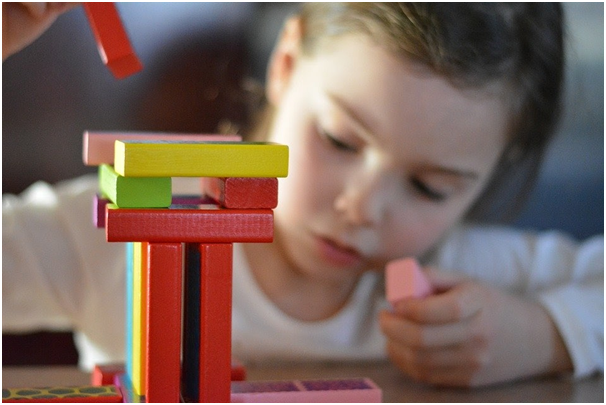A child’s cognitive development starts to show tremendous growth when they are between one to two years old. However, a child will begin to process the world around them in many ways from when they are born.
Below are seven methods that can help your child’s development.
Read to Your Child
Your toddler will love listening to your voice and looking at vibrant pictures even before they can grasp the concept of a book. Get a few children’s books and make storytime a habit for both your child and yourself.
As your child grows, you might even notice that your child reacts to the rise and fall of your voice following the story’s pace.
Storytime will also help to familiarize your growing child with attention and speech. Try using different voices when you are reading different characters’ dialogues.
Identify Objects and Sounds
Play this simple game with your child. Point at an object or listen to a particular sound and identify it. It can be simple things such as an apple, a chair, or the sound of an aeroplane flying past.
When your child gets more familiar with the terms for sounds and items, they are building their memory and word-association.
You can do this even when you are on the go. When you are in the car, from the comfort of a baby’s car seat, point out items to your child as you pass them by.
Choose Interactive Toys
Even the choices for your child’s toys matter when it comes to cognitive development. Opt for gadgets that make noise, can be stacked on top of each other or fit into each other.
Try not to overwhelm your child with the options available for playtime. Instead, show her just a couple of choices and let her experiment. You will be surprised by how much your child can learn on their own without your guidance.
It is also advisable to show some enthusiasm and respond to her interest when she learns something new. When you do this, your child will be more motivated to interact with new things and learn!
Hang Some Mirrors
Your baby will not immediately associate their mirror reflections with themselves, but they will slowly learn to do so when you hang mirrors where they can see themselves playing.
Whether you choose to hang a mirror next to your toddler’s crib or place one at the changing table, you will soon find that your child is staring at their reflections with curiosity. Believe it or not, associating a mirror image with themselves is also part of cognitive development!
Ask Questions
Even if your child may not know the words to answer yet, asking questions to your toddler can help your child to learn all about problem-solving and understanding their environment.
You can start by asking your toddler about which book they want you to read, or you can ask them safety-related questions such as the reasons why they should not play around the staircase.
Your child will soon be able to tell why they can or cannot do certain things to fit in with their surroundings.
Visit Different Places
You would be surprised by the number of things that can capture your young toddler’s attention and curiosity. Try bringing your child to the park, the zoo, a grocery store and any other places where your child can learn from their surroundings.
You can take this opportunity to ask them a question and see how your child responds and reacts to the new surroundings.
Practice Numbers & the Alphabet
Keep a poster of the alphabet and numbers in your child’s room or around the house. Teach and help your child to identify which letters are which, and what the numbers look like.
Try to make it a habit to sing the alphabet song now and then, and prompt your child to count along with you when you are going about your day.
When you keep this practice up with your kids, you will see that they can learn faster than you can imagine.
Author: I’m Jaylin: SEO Expert of Leelija Web Solutions. I am a content manager, and the author of elivestory.com and a full time blogger. Favorite things include my camera, travelling, caring my fitness, food and my fashion. Email id: editor@leelija.com




